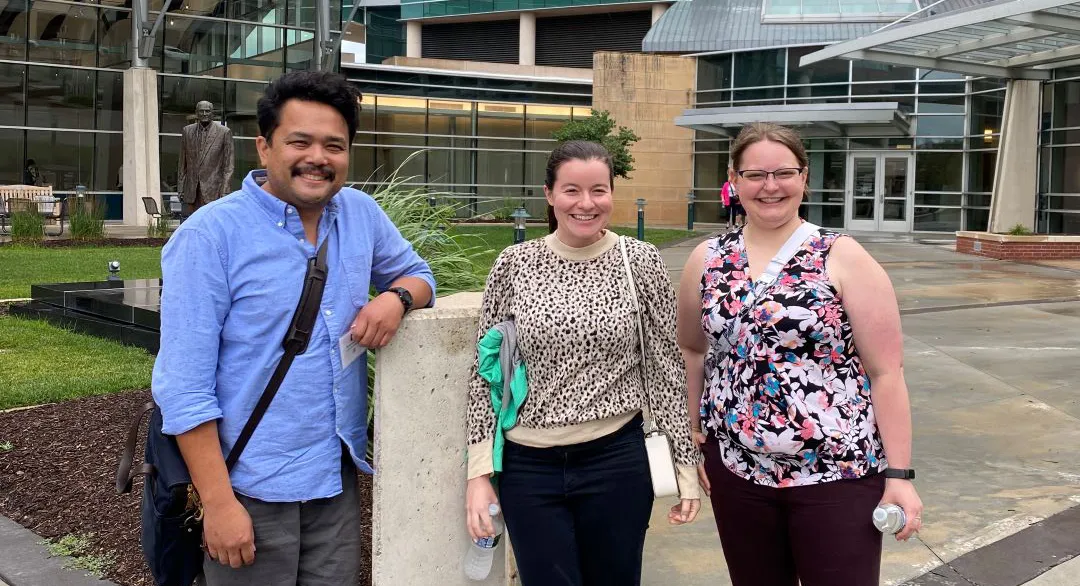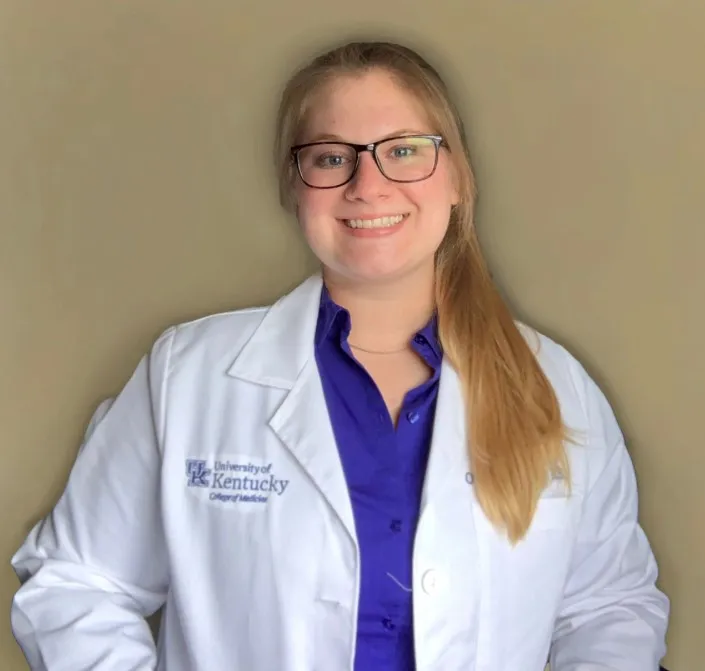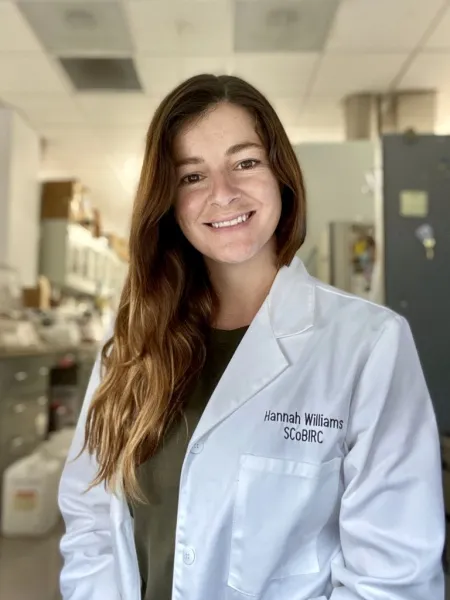Neurobiology of CNS Injury and Repair T32

University of Kentucky T32 Fellows Jessica Gebhardt and Katherine Cotter and Dr. Warren Alilain attended the 2nd Annual NINDS T32 Workshop at the University of Nebraska Medical Center in Omaha, NE, June 26-28, 2024. At this workshop, our trainees and faculty were able to interact and network with other T32 programs from across the United States. The keynote speaker was Dr. Howard Gendelman, MD, of the University of Nebraska and presented "The Neuroimmunity of Alzheimer's Disease". Other featured presentations focused on the topics of causality in science and rigorous inference when data are imperfect. Our T32 Fellows also had an opportunity to present their projects in an exciting "Taxpayer Shark Tank" panel which they agreed was a challenging but fun experience. The workshop was capped off with a relaxing evening (despite the rain) at the Omaha Zoo.
Current Trainees




Previous Trainees

Olivia Kalimon
Years: 2021-2023
Department(s): Neuroscience & Spinal Cord and Brain Injury Research Center
Current Position: Doctorate Student
Summary of research: Traumatic brain injury (TBI) is a global health concern that affects millions of individuals each year, however, the inclusion of females in TBI research is still limited. It was recently reported in a large percentage of human and animal studies including both sexes, that females had improved outcomes over their male counterparts after severe TBI. The mechanism behind this sex difference remains to be elucidated, although mitochondria may be playing a significant role. Mitochondrial dysfunction is a key hallmark of TBI and has been shown to be worse in males compared to females. During her time in the Sullivan Lab, Olivia has been characterizing sex differences in mitochondrial dysfunction using state-of-the-art molecular and biochemical techniques, which was recently published in Neurotrauma Reports. Olivia is also interested in the role that estrogen may have on these processes after TBI, as well as the use of a novel mitochondrial-targeted therapeutic to relieve both mitochondrial and cognitive impairments after brain injury.

